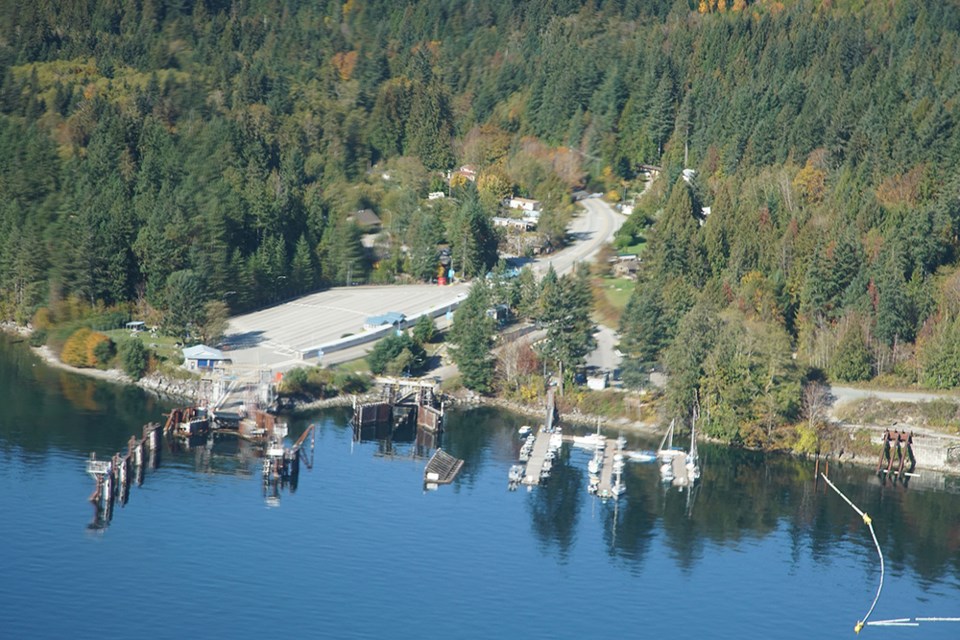In cooperation with the shíshálh Nation on the lower Sunshine Coast, the province has restored the name. The province has also renamed the Wilson Creek community to ts’uḵw’um. This name will be shared with the nearby creek.
According to a media release from the province, the name changes are to reflect the language, culture and heritage of local Indigenous peoples.
The Peak reached out to the ministry of Indigenous relations and reconciliation and was referred to the provincial ministry of forests, lands, natural resource operations and rural development. The ministry stated that the name of the waterbody has officially changed from Saltery Bay to sḵelhp (the name sḵelhp has been restored). Official provincial and federal maps and charts will refer to this waterbody by its restored name.
According to the ministry, buildings or other entities carrying a similar name to the waterbody are not required to follow suit but may choose to do so.
Finally, the ferry terminal in question is in the unincorporated community of Saltery Bay, and a prospective name change for the terminal would be determined by BC Ferries, according to the ministry.
qathet Regional District (qRD) board chair Patrick Brabazon said the name change applies to the body of water and he understands BC Ferries is trying to figure out what to do with the name of the terminal.
“Although the qRD board has not taken a position with regard to Saltery Bay, I can offer my personal opinion,” said Brabazon. “This is a welcome decision and a timely one. In this time of reconciliation, the adoption of original Indigenous names is a welcome practice. I personally support it.”
In the media release, hiwus (chief) Warren Paull of the shíshálh Nation stated this is a good step on the path of reconciliation.
“Recognizing the original names of the area has great meaning to our people and is one aspect of revitalizing our language,” stated Paull. “We appreciate the support of our provincial and regional district partners. Working together, we are charting a new, respectful and cooperative future for shíshálh members and all those who live within our swiya.”
Katrine Conroy, minister of forests, lands, natural resource operations and rural development, stated: “Working together with partners like the shíshálh Nation is how we make meaningful progress towards reconciliation. Honouring the language and history of Indigenous peoples is profoundly important, and so I am elated at the return of the traditional names ts’uḵw’um and sḵelhp to the shíshálh swiya/Sunshine Coast area.”
The release stated that the 2018 Foundation Agreement between shíshálh Nation and the provincial government includes consideration of several changes back to shíshálh place names. The agreement also includes the transfer of land to shíshálh, funds for shíshálh to purchase timber volume and commitments for cooperation on land-use planning and shared decision-making.
“Colonial policy and the residential school system tried to extinguish Indigenous language and culture,” stated Murray Rankin, minister of indigenous relations and reconciliation. “By restoring these ancient place names, we respect and honour the shíshálh Nation’s deep connection with the swiya and to their language and culture.”
The release stated that recognizing Indigenous place names is part of BC’s work to advance reconciliation and implement the United Nations declaration on the rights of indigenous peoples through the Declaration on the Rights of Indigenous Peoples Act.



